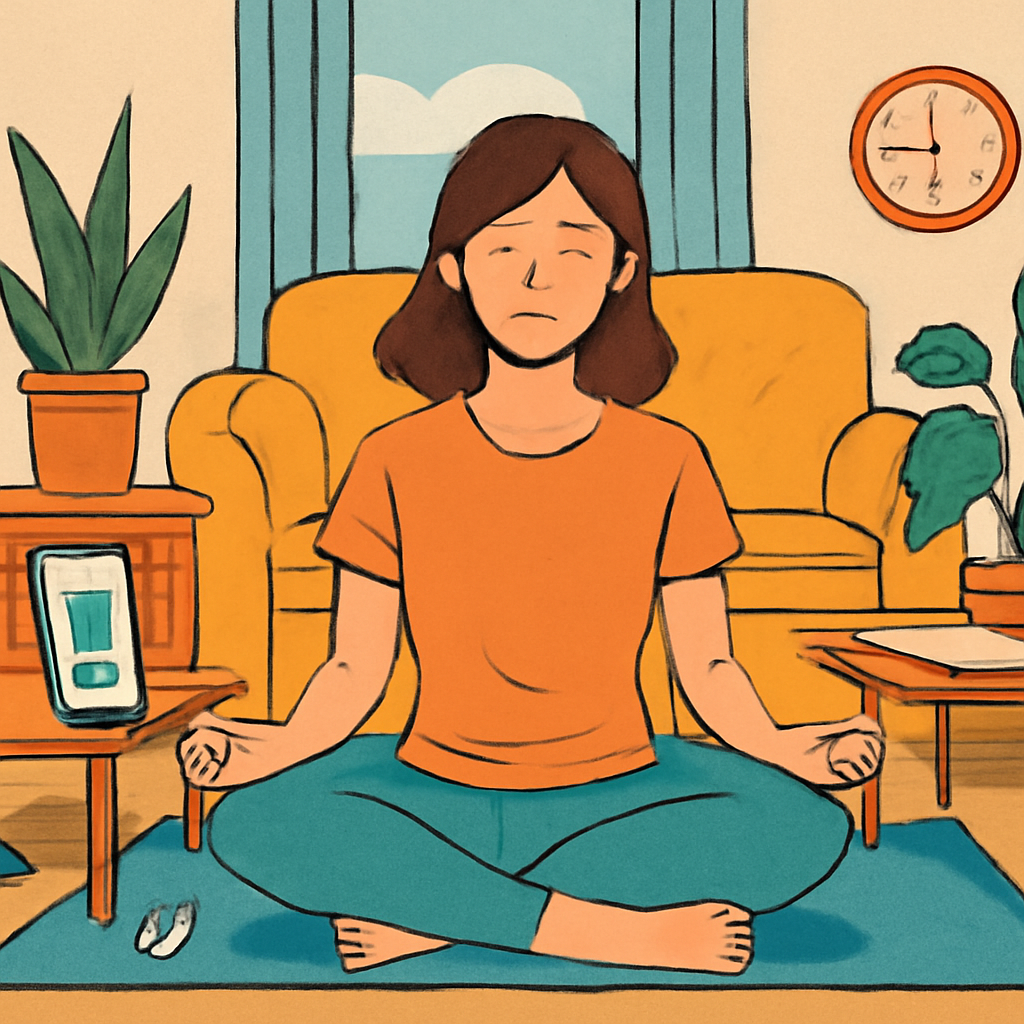Feeling mentally fried, emotionally worn down, and physically exhausted after a chaotic week? You’re not alone. Many professionals, parents, and students alike seek ways to reset after an overwhelming week, aiming to restore balance and reclaim peace of mind. With modern stress levels at record highs, it’s crucial to have go-to strategies for recuperation. This article explores powerful, science-backed methods to help you recharge effectively and start fresh every Monday.

1. Embrace Mindfulness Practices
One of the most talked-about solutions in the wellness world today is mindfulness—and for good reason. Mindfulness-based practices help train your mind to remain in the present, rather than spiraling into the chaos of yesterday or tomorrow.
Benefits Backed by Science:
Mindfulness-Based Stress Reduction (MBSR) has been shown to lower cortisol levels, reduce anxiety, and enhance overall psychological resilience (Kabat-Zinn, 1990). In a review of over 200 studies, mindfulness meditation was consistently linked with reduced stress and improved emotional regulation (Goyal et al., 2014).
How to Start:
- Deep Breathing (Box Breathing): Inhale for 4 seconds, hold for 4, exhale for 4, hold again for 4. Repeat 5 times.
- Body Scan Meditation: Mentally “scan” your body from head to toe, observing sensations without judgment.
- 5-Minute Gratitude Practice: Write down 3 things you’re grateful for, no matter how small.
2. Leverage Digital Mental Health Tools
Digital mental health is an emerging trend that’s making psychological support more accessible than ever. Mobile apps and AI-powered tools now offer real-time assistance and cognitive behavioral therapy techniques.
Top Picks:
- Woebot: A chatbot based on CBT principles, helping users navigate mood swings, stress, and anxiety.
- Wysa: Uses AI to guide users through journaling, goal setting, and mental health exercises.
According to the National Institute of Mental Health, these digital tools provide scalable and low-barrier access to mental health resources, especially useful for those unable to attend in-person therapy (NIMH, 2023).
3. Establish a Structured Morning Routine
What you do in the first hour of your day significantly shapes the rest of it. If your mornings are disorganized, your entire day may follow suit.
Morning Routine Blueprint:
- Avoid your phone for the first 30 minutes.
- Hydrate: A glass of water before coffee helps rehydrate your system.
- Light Movement: Stretching or yoga improves circulation and shakes off grogginess.
- Planning Session: Spend 5 minutes reviewing tasks and setting priorities.
Even Better Homes & Gardens highlighted how consistent morning habits increase productivity and reduce mental clutter throughout the day (BHG, 2025).
4. Get Moving—Your Brain Will Thank You
You don’t need a gym membership to benefit from movement. Exercise in any form helps to reset after an overwhelming week by increasing dopamine and serotonin—your body’s feel-good chemicals.
Quick Wins:
- A 15-minute walk in nature can cut stress hormones by up to 20%.
- A 10-minute dance break in your living room can shift your mood dramatically.
- Yoga or pilates can reduce physical tension built up from sitting or bad posture.
Physical activity has been shown in numerous studies to reduce symptoms of anxiety and depression and improve sleep quality (Sharma et al., 2006).
5. Prioritize Sleep Hygiene
You can’t reset if you’re sleep-deprived. Sleep is the body’s way of recovering not just physically but also mentally and emotionally.
Tips for Better Sleep:
- Stick to a schedule: Go to bed and wake up at the same time every day.
- Create a wind-down routine: No screens 60 minutes before bed. Try reading, listening to soft music, or taking a warm bath.
- Control your environment: Keep your bedroom cool, dark, and quiet.
Research published in Sleep Health found that individuals who maintained consistent sleep routines reported better mental focus and reduced emotional volatility (Hirshkowitz et al., 2015).
6. Declutter to Decompress
Clutter contributes to sensory overload and stress. A cluttered home or workspace can subconsciously remind you of undone tasks and feed anxiety.
Decluttering Steps:
- Tackle one small area: A drawer, a shelf, or your desk.
- Use the “Three Box Rule”: Label boxes as “Keep,” “Donate,” or “Trash.”
- Maintain with mini-resets: Spend 10 minutes each evening putting things back in place.
Zen Habits notes that even five minutes of decluttering can lead to noticeable mental clarity (Leo Babauta, 2023).
7. Tap into Social Connection
While isolation can make stress worse, social support helps you process emotions and regain perspective. Reaching out to a friend, family member, or support group can make a massive difference.
Easy Social Resets:
- Call someone you trust and just talk.
- Schedule a short coffee catch-up or walk with a friend.
- Join a local or online hobby group to engage in light-hearted interaction.
A study published in the American Journal of Psychiatry found that people with strong social connections are 50% more likely to live longer and report lower stress levels (Holt-Lunstad et al., 2010).
8. Journal for Mental Clarity
Journaling is an underrated but powerful tool to reset after an overwhelming week. It can help externalize your thoughts, sort through emotions, and reflect on wins or lessons.
Prompts to Try:
- What challenged me this week?
- What brought me joy?
- What can I let go of moving into next week?
You don’t need to be a “writer” to benefit—just grab a notebook and let your thoughts flow.
9. Limit News and Social Media
If you’ve spent your week doom-scrolling or responding to every ping, your brain likely needs a break. Information overload is real, and it keeps your mind in a state of constant vigilance.
Control Digital Intake:
- Mute notifications: Especially from non-essential apps.
- Use screen time apps: Set daily limits for news and social media.
- Unfollow triggers: Accounts or outlets that incite negativity.
This mindful digital detox can make room for mental space and reduce unnecessary stress triggers.
10. Reflect and Set Micro-Goals
Ending your week with intention can help you enter the next one with clarity. Reflection allows you to celebrate small wins and acknowledge areas for growth without judgment.
Micro-Goal Formula:
- Reflect: What went well? What drained you?
- Recalibrate: What can you change next week?
- Reset: Set one health goal, one work goal, and one fun goal.
Creating this simple framework ensures that your reset doesn’t become another stressor.
Conclusion:
Resetting after an overwhelming week isn’t about overhauling your life overnight. It’s about introducing small, meaningful habits that help you regain balance. Whether it’s taking five minutes to breathe, deleting a few emails, or dancing in your kitchen—every step counts.
When integrated consistently, these strategies don’t just help you recover—they build resilience for the future. Try them, tweak them, and make them your own. Because every week offers a new chance to reset, recharge, and reclaim your calm.
References:
- Kabat-Zinn J. (1990). Full Catastrophe Living. New York: Dell Publishing.
- Goyal, M. et al. (2014). ‘Meditation Programs for Psychological Stress and Well-being: A Systematic Review and Meta-analysis’, JAMA Internal Medicine, 174(3), pp. 357–368.
- National Institute of Mental Health (2023). Technology and the Future of Mental Health Treatment. Available at: https://www.nimh.nih.gov/health/topics/technology-and-the-future-of-mental-health-treatment (Accessed: 21 May 2025).
- Better Homes & Gardens (2025). 7 Morning Rituals for a Stress-Free and Organized Home. Available at: https://www.bhg.com/morning-rituals-for-organized-home-11723853 (Accessed: 21 May 2025).
- Hirshkowitz, M. et al. (2015). ‘National Sleep Foundation’s sleep time duration recommendations: Methodology and results summary’, Sleep Health, 1(1), pp. 40-43.
- Holt-Lunstad, J., Smith, T.B. and Layton, J.B. (2010). ‘Social Relationships and Mortality Risk: A Meta-analytic Review’, PLOS Medicine, 7(7), e1000316.
- Babauta, L. (2023). A Guide to Cutting Back When You Feel Overwhelmed. Zen Habits. Available at: https://zenhabits.net/a-guide-to-cutting-back-when-you-feel-overwhelmed (Accessed: 21 May 2025).









